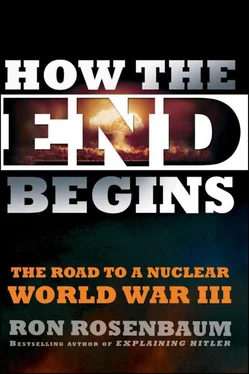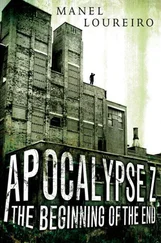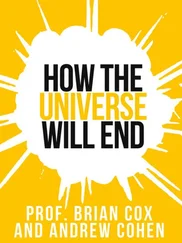Q:So they weren’t going to be taking this—
SENIOR INTELLIGENCE OFFICIAL 2:We don’t—
SENIOR INTELLIGENCE OFFICIAL 1:We examined—
SENIOR INTELLIGENCE OFFICIAL 2:We examined that. We examined that hypothesis. This just wasn’t.
SENIOR INTELLIGENCE OFFICIAL 1:Probably not.
SENIOR INTELLIGENCE OFFICIAL 2:You know, a reactor in Syria for Syria, that it may be outsourcing. And our judgment based on the overwhelming body of evidence is it was A, not B. That it was in Syria for Syria.
SENIOR INTELLIGENCE OFFICIAL 2:I’m sorry. Yeah, you’re right. [The Senior Administration Official] is correcting me. Option A was in Syria for North Korea; option B was in Syria for Syria. We think it was in Syria for Syria, although we examined both options and held it up to the light with the available evidence. [Here is where they should say they have low confidence. They have no way of knowing where the prospective plutonium would have ended up, unless they’re not telling us something about how they know this, which is entirely possible.]
Q:How much money is in it for North Korea?
SENIOR INTELLIGENCE OFFICIAL 2:Not at liberty to say. [Suggests pretty hard evidence of a known sum.]
Q:I believe a Calder Hall reactor is fueled with naturally occurring uranium. Is there such deposits in Syria? Have you looked to see whether or not the Syrians were actually mining their own uranium, and if so, again, have you located that site? And if not, where were they going to get the uranium from?
SENIOR INTELLIGENCE OFFICIAL 2: [to Senior Intelligence Official 3] Is there anything that you know that we can share?
SENIOR INTELLIGENCE OFFICIAL 3:No, sir. [i.e., We may know a lot.]
SENIOR INTELLIGENCE OFFICIAL 2:Okay.
Q:Can I just ask to be clear what you mean when you’re talking about low confidence… how that compares to, in the talking points here that you lay out, the nearing operational capability? Can you just walk me through what exactly that means?
Q:So I’m trying understand, then, okay, so they were nearing operational capability but then can you compare what that means.
SENIOR INTELLIGENCE OFFICIAL 2:Okay, I got it.
Q:The low confidence. I want to be clear on that.
SENIOR INTELLIGENCE OFFICIAL 2:Yeah. Again, this is a bit arcane [by this point it shouldn’t be], and I’m trying to be very precise with our language here, okay. We were certain, okay, this was a reactor and that it was going to produce plutonium. We saw no other logical use for that plutonium based upon, no other use for the reactor other than creating plutonium. And then our judgment was that the Syrians would only have done this, with the great expense and perhaps political risk involved, for a weapons program, although we had not yet detected the detailed and constituent elements of such a weapons program. That is, and therefore, we said, we believe, Mr. President, that is what this is for.
SENIOR INTELLIGENCE OFFICIAL 1:It may be—
SENIOR INTELLIGENCE OFFICIAL 2:But the body of evidence on which we’re basing that is more limited than some of the other things we’re telling you.
SENIOR INTELLIGENCE OFFICIAL 1:It may be useful, too, to separate it in pieces. Go to the question that was asked about natural uranium. You can take natural uranium, get access to it, build a plant like this, and cause a reactor to operate, which would produce plutonium. So natural uranium in one place, a reactor to produce plutonium, and now you have to reprocess it to turn it into the kinds of material that would be used for weapons, so what we’re describing to you with regard to our confidence level, plus with the regard to the reactor in the middle piece.
The briefing suddenly shifts to the subject of Iran.
Senior Official 1 clearly wants to correct the record.
SENIOR OFFICIAL 1:Can I just make a comment on Iran because I know that’s eventually, if we stayed long enough you’re eventually going to get there. And I think it’s useful to talk about nuclear weapons and Iran in this context because this all is potentially interrelated.
[This is almost funny—his attempt to make it seem as if he is only talking about Iran because he knows that eventually the reporters would ask him about Iran when, in fact, he is impatient with the fact that they haven’t. McConnell is about to explain—as I heard him say at a private dinner forum some weeks later—that a misunderstanding about confidence levels was responsible for a worldwide misunderstanding of the 2007 National Intelligence Estimate on Iran’s nuclear program. That misunderstanding fatally weakened the attempt by the U.S. and the European Union and other anti-proliferation forces to halt by peaceful means—through sanctions—the Iranian nuclear weapons program by misleading the entire world into thinking it had already been halted when the opposite was true. The 2005 NIE on Iran depicted an ambitious program for acquiring nuclear weapons involving the three components of such a program, getting highly enriched uranium (HEU) fuel for the fissile component, developing missile delivery systems capable of carrying a nuclear warhead long distances, and designing and engineering the nuclear warhead itself. Then in November 2007 a new NIE essentially reversed the judgments of the 2005 NIE and said, in its declassified summary of “key judgments.” “We judge with high confidence, that in fall 2003, Tehran halted its nuclear weapons program.” That sentence made front-page headlines all over the world.
The problem was that the sentence was scandalously inaccurate, knowingly inaccurate, contradicted by a footnote that the authors must have trusted the media to ignore—as they did almost universally in writing their “Iran/no nukes” front-pagers. The footnote keyed to that statement read thus: “For purpose of this estimate, by ‘nuclear weapons program’ we mean Iran’s nuclear weapons design and weaponization work and covert uranium conversion-related work…. We do not mean Iran’s declared civil work related to uranium conversion and enrichment.”
In other words, the executive summary of the 2007 NIE that was handed out to the press said it believed Tehran had halted one of three aspects of its nuclear weapons program in 2003, not the entire program, just the actual warhead design. But Iran had not halted uranium enrichment, even though it had declared they were only enriching the fissile material for peaceful reactor use. It had not halted work on long-range missile delivery systems, including the Shehab-3.
And as far as the warhead weapons design itself Iran may have halted work in 2003 because such work had already reached completion. Its leaders could easily have bought the plans from A. Q. Khan; they were ready to build the bomb—they just needed the fuel.
As it turns out, the intelligence that lay behind even the judgment about Iran halting work on the warhead was eventually called into question. It was based on electronic intercepts of conversations between Iranian scientists and managers of the nuclear program who were overheard complaining about the halt in the program—which led many to suspect the conversations were crafted by Iranians who wanted to disguise the fact that work was continuing but knew they were being overheard.
Читать дальше











